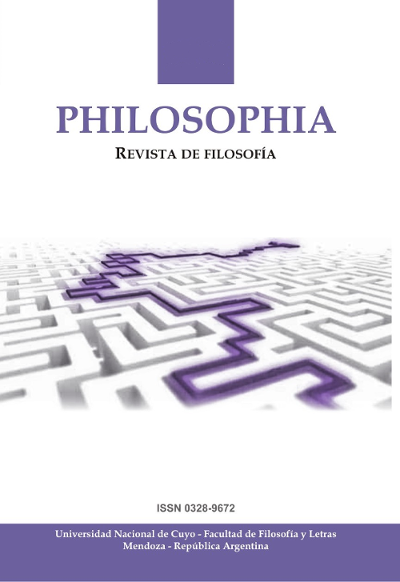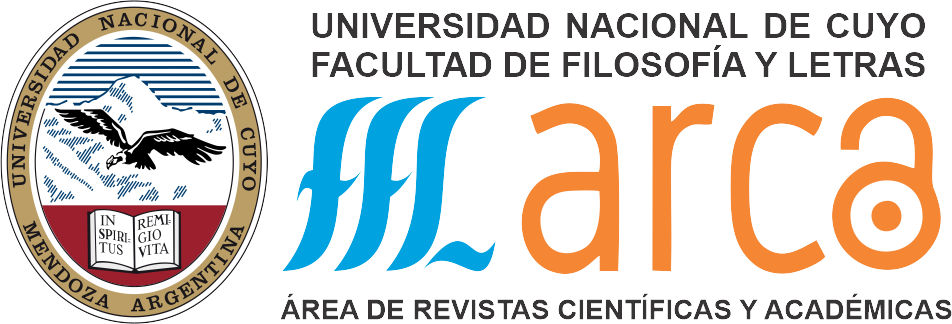Transparency, Disclosedness and Conscience: the Self-Clarification in Sein und Zeit
DOI:
https://doi.org/10.48162/rev.50.006Keywords:
Self-disclosure, Conscience, Transparency, TruthAbstract
The aim of this paper is to examine the notion of “Transparency” (Durchsichtigkeit) as an express definition of what, for Heidegger, the self-knowledge of Dasein consists of. Therefore, it will also be necessary to inspect the concept of self-deception associated with it insofar as it is its opposite. To that end, I will confront the passages where this question is dealt with (i.e. § 31 of Sein und Zeit), with those others (§§ 54-60) intended by the author to elucidate the structure of conscience on the basis of an existential interpretation of it that highlights the ontological conditions of its possibility. My hypothesis is that this transparency of which Heidegger speaks must be understood from the guidelines established in the explanation of the Disclosedness of Gewissen itself and the existentiell modification that it entails, with which the potentiality-for-Being-its-Self is attested in front of the They and, then, the clarification of the Selbst.
References
Burnet, John. Platonis opera, vols. 2 y 3. Great Britain: Oxford University Press, 1903.
Courtine, Jean-François. “Voice of Conscience and Call of Being.” Topoi 7 (1988): 101–109.
Crowell, Steven. “Subjectivity: Locating the First-Person in Being and Time.” Inquiry: An Interdisciplinary Journal of Philosophy 44/4 (2001): 433-454.
Denyer, Nicholas. Plato. Alcibiades. Cambridge: Cambridge University Press, 2001.
Heidegger, Martin. Logik. Die Frage nach der Wahrheit. Frankfurt am Main: Vittorio Klostermann, 1976.
Heidegger, Martin. Ontologie. Die Hermeneutik der Faktizität. Frankfurt am Main: Vitto-rio Klostermann, 1988.
Heidegger, Martin. Sein und Zeit. Tübingen: Max Niemeyer Verlag, 2006.
Jaeger, Werner, ed. Aristotelis Metaphysica. Great Britain: Oxford University Press, 1957.
Kant, Immanuel. Gesammelte Schriften. Abtheilung I: Werke. Bd. 6: Die Religion in-nerhalb der Grenzen der blossen Vernunft. Die Metaphysik der Sitten. Berlin: De Gruy-ter, 1969.
Käufer, Stephan. “Jaspers, Limit-Situations, and the Methodological Function of Authen-ticity.” En Heidegger, Authenticity and the Self. Themes From Division Two of Being and Time, editado por Denis McManus, 95–115. London; New York: Routledge, 2015.
Renaud, François y Tarrant, Harold. The platonic Alcibiades I. The Dialogue and its Re-ception. Cambridge: Cambridge University Press, 2015.
Rivera, Jorge Eduardo, trad. Martin Heidegger: Ser y tiempo. Santiago de Chile: Editorial Universitaria, 1997.
Rosales, Alberto. Unidad en la dispersión. Aproximaciones a la idea de filosofía. Mérida: Universidad de Los Andes, Publicaciones del Vicerrectorado Académico, Editorial Ve-nezolana, 2006.
Sandys, John, trad. The Odes of Pindar including the Principal Fragments with an Intro-duction and an English Translation. London: William Heinemann; New York: The MacMillan Co., 1937.
Scott, Charles. “Heidegger and Consciousness.” Southern Journal of Philosophy 8/4 (1970): 355–372.
Slings, S. R. Platonis Rempublicam. Great Britain: Oxford University Press, 2003.
Vigo, Alejandro. Conciencia, ética y derecho. Estudios sobre Kant, Fichte y Hegel. Hil-desheim; Zürich; New York: Georg Olms Verlag, 2020.
Vigo, Alejandro. “La atestiguación, en el modo de ser del Dasein, de un «poder-ser» pro-pio y el «estado de resuelto» (§§ 54-60).” En Ser y tiempo de Martin Heidegger. Un comentario fenomenológico, coordinado por Ramón Rodríguez, 269–301. Madrid: Tecnos, 2015.
Watts, William, trad. St. Augustine’s Confessions (Books 9–13), vol. 2. London: William Heinemann; New York: The MacMillan Co., 1912.
Published
How to Cite
Issue
Section
License
Copyright (c) 2021 Philosophia

This work is licensed under a Creative Commons Attribution-NonCommercial-ShareAlike 3.0 Unported License.
Se permite la reproducción de los artículos siempre y cuando se cite la fuente. This work is protected under license Attribution-NonCommercial-ShareAlike 3.0 Unported (CC BY-NC-SA 3.0) You are free to: Share "” copy and redistribute the material in any medium or format; Adapt "” remix, transform, and build upon the material
The licensor cannot revoke these freedoms as long as you follow the license terms.
Under the following terms:
Attribution "” You must give appropriate credit, provide a link to the license, and indicate if changes were made. You may do so in any reasonable manner, but not in any way that suggests the licensor endorses you or your use.
NonCommercial "” You may not use the material for commercial purposes.
ShareAlike "” If you remix, transform, or build upon the material, you must distribute your contributions under the same license as the original.
No additional restrictions "” You may not apply legal terms or technological measures that legally restrict others from doing anything the license permits.
For more information, please visit: https://creativecommons.org/licenses/by-nc-sa/3.0/deed.en






